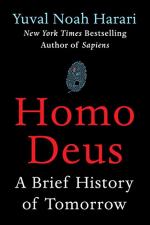
|
| Name: _________________________ | Period: ___________________ |
This test consists of 15 multiple choice questions and 5 short answer questions.
Multiple Choice Questions
1. What did Chinese bureaucrats do to make it seem as though Mao Zedong's agricultural program was working?
(a) They pretended not to know about Mao Zedong's program.
(b) They created imaginary reports about increases in agricultural output.
(c) They withheld food from the poor to stock warehouses.
(d) They bought extra food from foreign governments.
2. When did the idea of having green lawns around dwellings begin?
(a) In the early 20th century.
(b) In the Middle Ages.
(c) With the invention of tennis.
(d) In ancient Greece.
3. How much of our bodily activities are accomplished without conscious feelings?
(a) 75%.
(b) 36%.
(c) 99%.
(d) 89%.
4. In ancient Egypt, the pharaoh was considered what type of ruler?
(a) A representative of god.
(b) A king.
(c) An actual god.
(d) A national treasure.
5. Religion is a deal, whereas spirituality is ___________.
(a) Undefined.
(b) A personal experience.
(c) An unknown.
(d) A journey.
6. What is the single greatest constant in history?
(a) We always learn lessons.
(b) People never change.
(c) Everything changes.
(d) The future is unknown.
7. What written document helped thousands of Jews escape Nazi persecution in France?
(a) A visa.
(b) A land grant.
(c) Proof of citizenship.
(d) A driver's license.
8. To raise global happiness, what has to be done?
(a) Manipulation of the human biochemistry.
(b) Follow the teachings of Buddha.
(c) Increase global GDP.
(d) Increase distribution of Ritalin.
9. During the Agricultural Revolution humans silenced animals and plants. During the Scientific Revolution humans silenced what or whom?
(a) Animists.
(b) Traditionalists.
(c) Historians.
(d) God.
10. As a result of the Agricultural Revolution, humans insured the survival and reproduction of domesticated animals while ignoring what?
(a) The subjective needs of animals.
(b) The means of distribution.
(c) Population control.
(d) The natural habitat of animals.
11. What is the definition of humanism in Harari's book?
(a) Philosophy of free will.
(b) The worship of humankind.
(c) Acting for the common good.
(d) The value of humans over animals.
12. Scientists claim biblical Judaism was not a scripture-based religion, it was a(n) __________.
(a) Iron Age cult.
(b) Series of elaborate rituals.
(c) A rival of religious elites.
(d) Rabbinical tradition.
13. Why does the theory of evolution reject the idea of a human soul?
(a) The soul is a myth.
(b) The soul has no parts.
(c) Evolution is strictly physical.
(d) The soul is invisible.
14. To what modern concept are the living-god pharaohs compared?
(a) Personal brands.
(b) Tax collecting.
(c) Agricultural conglomerates.
(d) Monotheism.
15. In what religious philosophy do humans replace gods?
(a) Humanist.
(b) Agricultural.
(c) Liberalist.
(d) Scientific.
Short Answer Questions
1. What could be considered a new kind of myth?
2. What Catholic monk instigated the Protestant Reformation?
3. What makes the fate of domesticated animals particularly harsh?
4. What was Clever Hans the horse able to do?
5. Sapiens live in a ___________-layered reality.
|
This section contains 469 words (approx. 2 pages at 300 words per page) |

|




